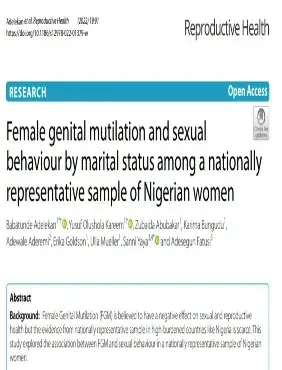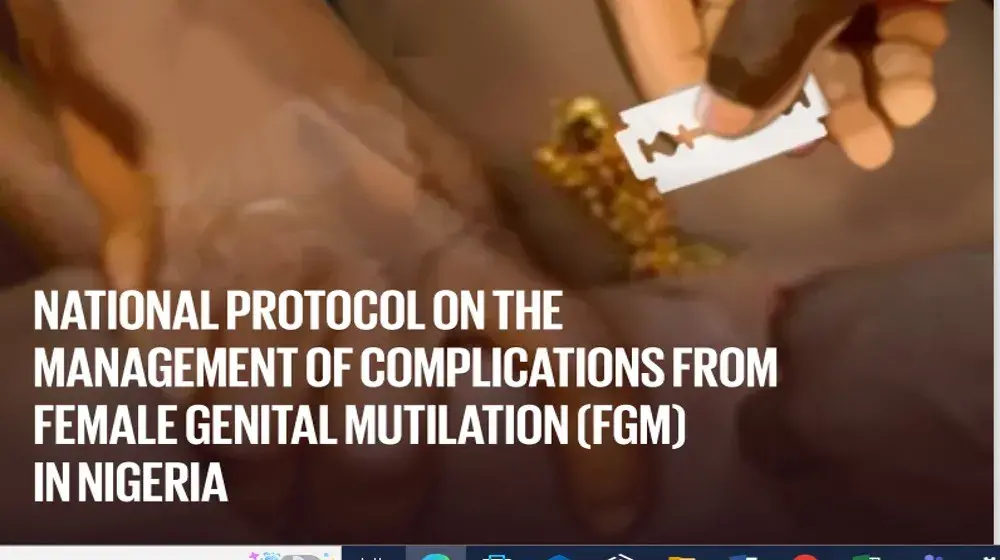Female genital mutilation (FGM) recognized internationally as a violation of human rights, refers to all procedures that involve partial or complete removal or other injuries to the female genital organs for non-medical reasons. About 200 million girls and women in 30 countries mainly in Africa, the Middle East and Asia have been subjected to FGM. Almost 22% of the estimated 68 million girls and women that are at the risk of being cut between 2015 and 2030 will be Nigerians. FGM is deeply entrenched within socio-cultural beliefs around preserving a girl’s purity and controlling women’s sexuality or chastity. It is also believed that FGM protects a girl’s virginity, prevents marital infidelity and is necessary to ensure male partners and/or husbands get better sexual satisfaction. However, studies on the association between women's sexual behaviour (sexual debut, pre-marital sex, multiple sexual partners, STDs, lifetime sexual partner, number of unions) and FGM is limited in countries where FGM is prevalent.
This study utilized pooled datasets from the Nigerian Demographic Health Survey conducted in 2013 and 2018 to explore the association between FGM and sexual behaviour among women of reproductive age. The findings revealed that there is no association between sexual behaviour and FGM among unmarried women. Circumcised ever-married women were more likely to contract sexually transmitted diseases and engage in pre-marital sex than those who were not circumcised. However, circumcised ever-married women were less likely to have multiple sexual partners in the last 12 months preceding the survey. This study disproves the assertion that FGM could control women’s sexual behaviour





